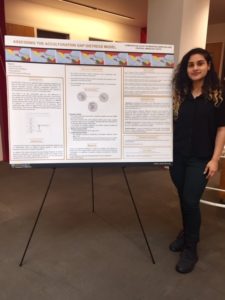Major and Classification
Psychology
Faculty Mentor
Dr. Stanley Huey
Department
Psychology
Research Gateway Project
“Assessing the Acculturation Gap Distress Model: A Comparative Study Between Central American and Mexican Youth in Los Angeles”
Project Abstract
Acculturation is the process whereby migrant individuals negotiate and adapt to the cultural practices and values of their host country. The research literature assesses different acculturative experiences of migrant groups by examining relationships between their adjustment and psychosocial outcomes to specific acculturation styles. One focus is on the acculturation gap (i.e., the differences in acculturation rates) between migrant parents and youth. Current studies that explore the acculturation gap demonstrate the presence of a gap among migrant parents and youth and its influences on different psychosocial outcomes, while other studies show no presence of a gap or no influence on psychosocial outcomes by its presence. However, these acculturation gap studies on migrants have not focused on primarily on ethnic groups. There may be differences among racial and ethnic groups in their acculturation experiences. This proposed study examined the differences in acculturation and family functioning among Mexican and Central American youth in the United States (with a data set of n=365, Mexican American=173, Central American=193). Assessing the rates of acculturation and the quality of family functioning among different migrant groups is of pressing importance because of the scarcity of current literature on diverse groups and the need to understand these topics from a culturally sensitive perspective as migration because more constant and diverse. Specifically, we examined whether the acculturation gap (i.e., the perceived cultural distance between youth) mediates the relationship between ethnicity (Central American vs. Mexican American) and family dysfunction. Linear Regression analysis was run as well as T-Tests and Bivariate correlations to our sample but contrary to Sociological and Ethnic Studies literature there was no significant difference in acculturation or family functioning between the two groups. However, conflict among Central Americans was trending. For future studies an effort to have enough power to run an individual participates of separate Central American participants should be done on the same kinds of questions investigated in this study.
